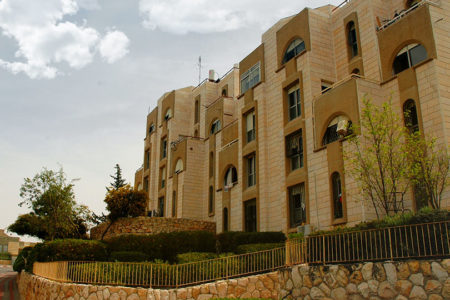Who is This Person?
Many people are use mirrors. But do they really recognize themselves? Are they using the right type of mirror?
What if you looked in a mirror and were unable to recognize yourself? Unfortunately, this type of thing happens. Sometimes traumatic brain injuries or diseases make it difficult for people to recognize faces, even their own. The condition is known as “face blindness,” and it is a major challenge for those who live with it.
Most of us readily accept the reflection in the mirror looking back at us as our own. We may not like what we see, but once we take inventory, we usually begin the task of making ourselves presentable. Life is messy, and personal grooming is necessary.
Merely looking at our reflection is not vain, but overemphasizing appearance can be dangerous. When the Lord announced, “Man looks at the outward appearance, but the Lord looks at the heart,” He put us on notice that who we are is far more important than how we look (1 Sam. 16:7).
Since the early days of the church, Christians have struggled with the lure of assessing spiritual maturity based on appearance. Even today we tend to judge godliness based on our personal checklists of visible criteria. Godliness is a character issue, not a method to be learned or a behavior to be modified. Yes, character will be observed, but not always. Many misjudged Jesus’ character. It’s always more comfortable (and less threatening) to compare ourselves to others, rather than take an honest look in the mirror. Mirrors don’t lie.
The Bible likens itself to a mirror in its unique reflective ability. For those who take the time to look into it, it provides a clear image of our true condition—not physically, but spiritually. God’s Word reveals the thoughts and intents of our hearts (Heb. 4:12). Every time we encounter biblical truth, a spiritual process begins where we are faced with a choice: Will we do something about what was revealed, or will we ignore it (Jas. 1:22–25)?
The book of James illustrates this point with the story of two men: The first saw his face in a mirror, walked away, and basically said, “Forget it!” Why would someone look into God’s mirror and then do nothing about the mess that might be staring back? Do some people have spiritual “face blindness” that blocks their ability to recognize themselves? The biblical cause is clear: “Be doers of the word, and not hearers only, deceiving yourselves” (v. 22). The cause is self-deception. The cure is to act, with God’s help, on what you see.
The sin of self-deception is widespread and comes in many forms. The Lord, who searches the heart and tests the mind, declares, “The heart is deceitful above all things…who can know it?” (Jer. 17:9.) Yet God knows the secrets of our hearts (Ps. 44:21). And He calls us to recognize spiritual self-deception, which keeps us from recognizing our true condition in the reflective pages of His truth.
James contrasted the self-deceived person with a second man who sees his heart from God’s perspective and does something about it. The result: He is blessed! Being blessed is to experience genuine joy flowing from God’s overwhelming grace and favor. People who live every day in obedient fellowship with Jesus Christ enjoy the tangible benefits of being blessed regardless of their often-difficult circumstances.
The blessed man in James 1:25 followed four principles when he looked at himself in the Word. These simple steps helped him guard his heart from being self-deceived.
One: A Desire to Learn
He “look[ed] into the perfect law of liberty” (v. 25). To “look into” is often translated to “look intently.” It speaks of stooping down to see something that cannot be seen without closer examination. It is used for the angels’ desire to learn about salvation in 1 Peter 1:12.
The “perfect law of liberty” refers to God’s revealed Word. In James’s day, people had the Hebrew Scriptures plus the teaching of Jesus and the apostles. Today we are blessed to have the completed Word of God, which is able both to teach us how to live and correct us when we wander from the path of righteousness.
When face-to-face with God’s Word, we should lean in to take a closer look at the application and implications for our lives, desiring sincerely to learn the truth about ourselves.
Two: A Determination to Go the Distance
The self-deceived individual in James 1:24 observes himself then leaves. But blessed people look intently then “[continue] in it” (v. 25). They remain in a state of self-examination and learning, regardless of how disturbing their reflections may be. They are determined to see the process through.
They do not view “the perfect law” as a brutal taskmaster or unbearable burden. To them, it is the source of true liberty. They want to know the truth because it sets them free. The Word opens new doors of fellowship with the Savior and teaches them wonderful things about the grace and character of the God in whom they have placed their trust. By submitting to God’s Word, they allow Him to refine them like gold and purge the hidden areas of sin that entangle them; and they grow stronger in their faith.
Are God’s commandments and standards a burden or a joy to be explored? In the busy world in which we live, it is common to have brief encounters in grab-and-go sermons, devotions, and studies. It is easy to spend more time and energy on what we look like than perfecting who we are.
Three: A Commitment to Remember
Continuing the comparison, James said one man “immediately forgets what kind of man he was” (v. 24) while the other “is not a forgetful hearer” (v. 25). A self-deceived person neglects what he sees, while a blessed person makes it a priority to remember what he has learned about himself.
Growing up, I attended Christian revivals, retreats, and camps where we were encouraged to consider our spiritual conditions and make a decision. At times, it was a call to put our faith in Jesus’ finished work on the cross for forgiveness and salvation. Other times it was a challenge to believers to repent and commit to living godly lives.
The energy and emotions were always high at those meetings. But, sad to say, many of the decisions were quickly forgotten. Sometimes, when my time in the Word shows me areas I need to correct, I quietly resolve to make the necessary changes, only to have my determination swallowed up by the unruly weeds of life.
True blessing does not come from quick emotional responses to a motivating message or testimony. God calls us to look intently, continue, and never forget who we are and what His grace has done and can do in our lives.
Four: A Response
It’s interesting that the blessing promised from responding correctly to God’s Word is only applied when the final principle is implemented: “This one will be blessed in what he does” (v. 25). We are to “be doers of the word, and not hearers only” (v. 22). The blessing comes when we act––whether it means obeying a command, trusting a promise, loving others, or confessing and repenting of our sin.
First John 1:8–9 says, “If we say that we have no sin, we deceive ourselves, and the truth is not in us. If we confess our sins, He is faithful and just to forgive us our sins and to cleanse us from all unrighteousness.” We are blessed when we see the truth about ourselves and actively respond in confession. Confession is truly believing and saying the same thing as God about our sins and hearts. When we come to Him honestly, declaring our struggles with sin and self-deception, He meets us with abundant forgiveness and cleansing grace––not with punishment.
Are we among the “face blind” or the blessed? Before entering the holy place in the ancient Tabernacle, the priests would cleanse themselves in a basin made from bronze mirrors. When a priest looked into the basin before dipping his hands, he saw his reflection––a reminder of his need for more than outward cleansing to truly enjoy the blessing of being in the Lord’s presence.
The basin is gone today, but God’s Word remains to give us an even clearer reflection. Someday, when we are finally with Christ, we will be like Him: “Beloved, now we are children of God; and it has not yet been revealed what we shall be, but we know that when He is revealed, we shall be like Him, for we shall see Him as He is. And everyone who has this hope in Him purifies himself, just as He is pure” (3:2–3). Until then, we need to make sure we’re not “face blind.”







